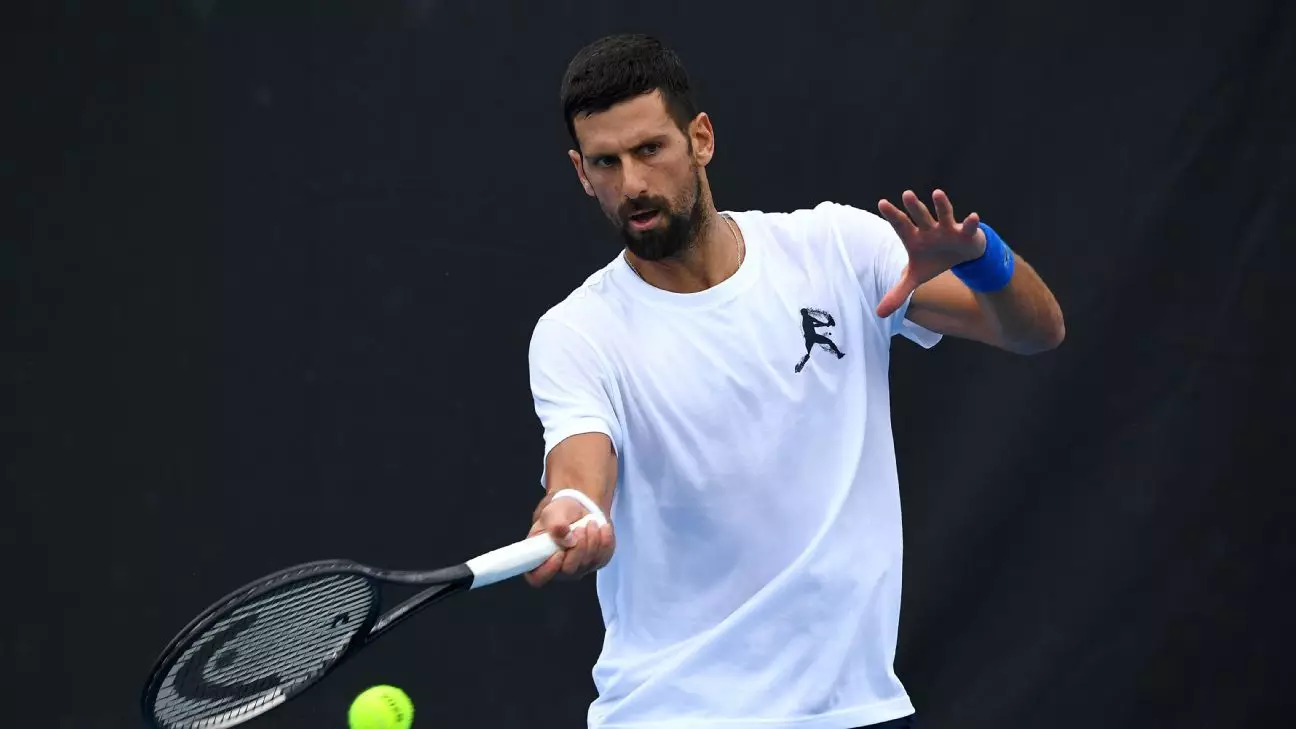As tennis gears up for another highly competitive season, a shadow looms over the sport. Many eyes are turned toward the ongoing doping controversies that have put a spotlight on inconsistencies within the regulatory framework of professional tennis. Novak Djokovic, a legend of the game and a prominent voice in the tennis community, has openly expressed his concerns regarding these critical issues. On the eve of his return to competitive play, Djokovic’s critiques resonate more than ever.
During his recent press conference in Brisbane, Djokovic made headlines as he shed light on the perceived double standards in the treatment of athletes involved in doping allegations. With the prestigious Australian Open on the horizon and Djokovic sitting as top seed in the Brisbane International—a tournament he hasn’t graced since 2009—his comments hold significant weight. He highlighted his bewilderment at being “kept in the dark” about Jannik Sinner’s doping case, which has raised many questions within the tennis community.
Djokovic’s frustration stems from the fact that some players remain suspended indefinitely while their cases drag on, whereas others receive swift resolutions. This disparity raises fundamental concerns about the fairness of the processes involved in dealing with doping violations. “We’ve had plenty of players… waiting for their case to be resolved for over a year,” he remarked, criticizing a system that appears inconsistent and opaque.
To better understand Djokovic’s concerns, it is vital to examine specific cases that have triggered these criticisms. Jannik Sinner tested positive for an anabolic steroid earlier in the year, but the International Tennis Integrity Agency (ITIA) ultimately decided against imposing a ban, declaring that he wasn’t at fault. This decision has been met with skepticism, especially given that WADA is appealing the outcome. In a parallel situation, Iga Swiatek, the former world No. 1 in women’s tennis, accepted a one-month suspension after testing positive for a different banned substance, trimetazidine.
The contrast in responses has triggered Djokovic’s inquiries, pushing him to question why certain players, particularly those with lower rankings, aren’t afforded the same leniency and support. Djokovic’s commentary suggests a deeper concern that external factors—such as player rankings, economic resources, or legal clout—might influence the outcomes of doping investigations. Thus, he has called for a more transparent and uniform approach to how these cases are handled.
The overarching theme of Djokovic’s statements calls for increased transparency from governing bodies like the ATP and ITIA. In his view, the integrity of the sport hinges on clarity in its regulations and a fair approach to all athletes. The comparison of Sinner’s case with high-profile cases like Simona Halep’s highlights the need for a comprehensive dialogue regarding doping policies. “It’s not a good image for our sport,” Djokovic stated, emphasizing that sporting organizations must strive for uniformity and fairness.
Djokovic believes that the current climate of secrecy around the doping cases undermines the credibility of tennis as a whole. Athletes, fans, and stakeholders deserve clarity and fairness, especially in a sport as scrutinized as tennis. Lack of information surrounding critical cases invites speculation and mistrust, potentially harming the sport’s reputation.
Despite the backdrop of these controversies, Djokovic remains determined to focus on his performance on the court. Coming off a successful run at Wimbledon, in which he reached the finals, he is now poised to make a strong showing at the Australian Open. It is noteworthy that Djokovic has enlisted the help of former rival Andy Murray as he prepares for the upcoming tournament, embracing this unusual partnership to enhance his game.
While Djokovic’s critique of doping regulation is vital and necessary, it reflects a broader concern regarding the integrity of ATP events as he continues to chase greatness. He exemplifies the essence of what it means to be a champion: to not only pursue excellence but to advocate for fairness and transparency within the sport. Djokovic’s outspoken stance serves as a clarion call for tennis to reevaluate its approach to doping allegations, ensuring that no athlete is left in the dark amidst the scrutiny of competition.


Leave a Reply